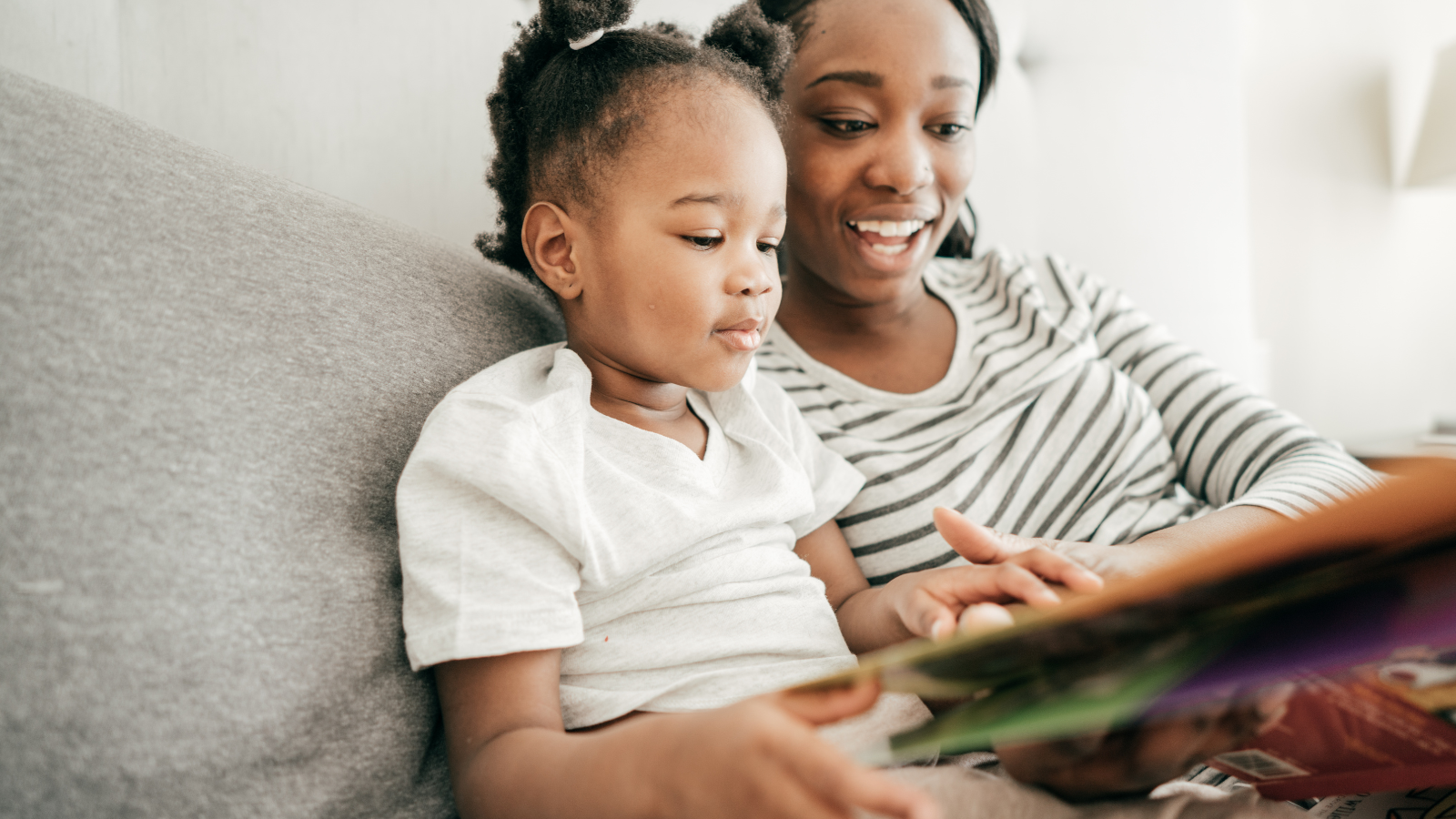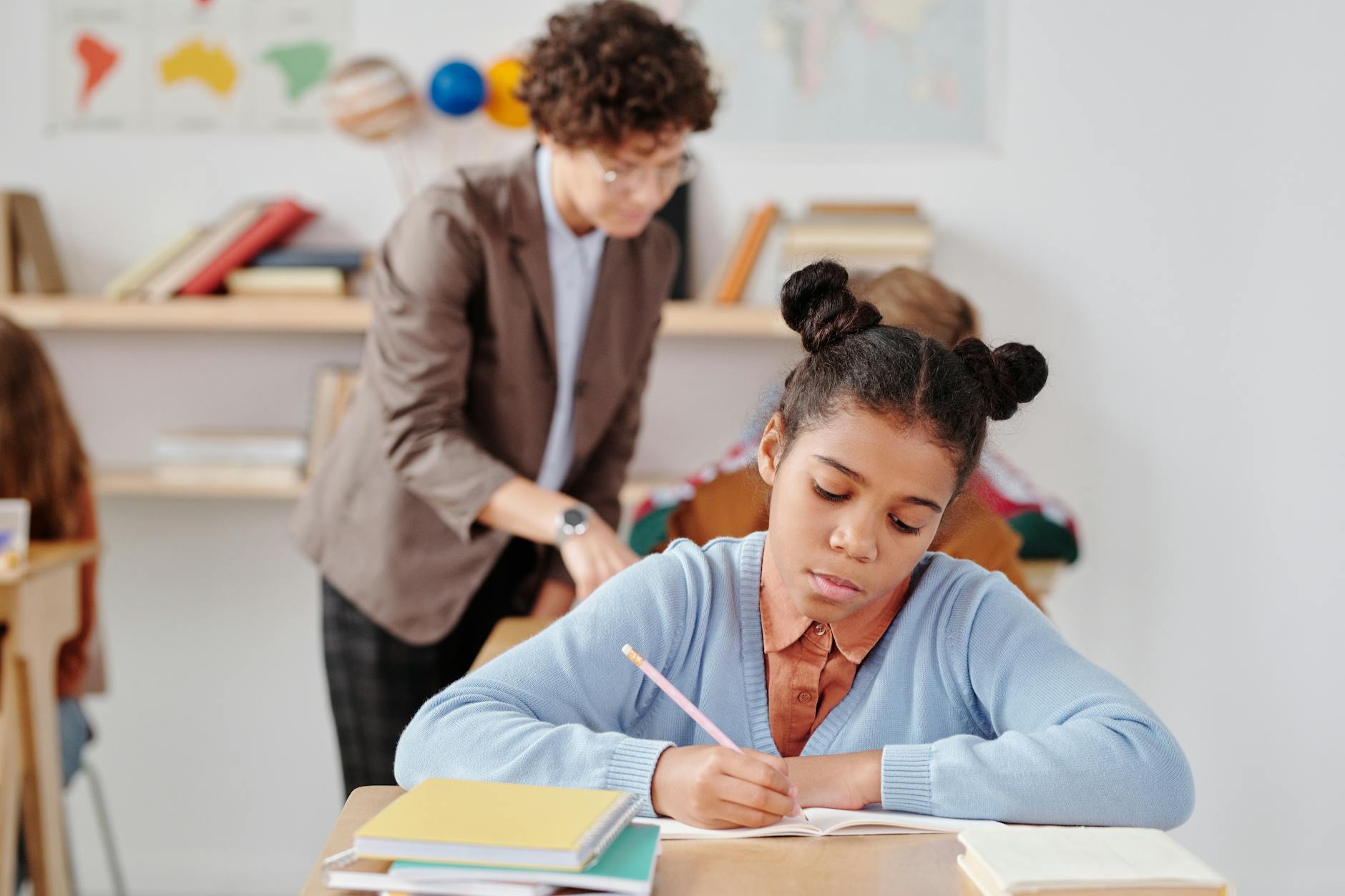FREE tips and resources to help your preschooler or school-aged child learn “book language” for later school and life success
I’m confronted with tens of thousands of words a day. Most of them are written words – something I didn’t really think about until I read a marvellous new paper by Professor Kate Nation and colleagues (citation below).
Before my first client each day, I’ve usually devoured news headlines, doom-scrolled social media feeds, scanned my inbox for urgent emails, and – if I’m lucky – skimmed a research summary or two. In sessions with clients, I read all day. I then go home to read subtitled TV, night-time emails and texts, and (if I don’t fall asleep first) a few pages of a good book.
Without help, I couldn’t do any of these things without my written language – reading – skills.
1. Spoken and written language are related but different
Humans have a biological instinct for oral (spoken) language. Oral language is often considered an evolved, biologically primary skill.
When we start reading, our language experience changes in major ways. Learning to read is built in part on oral language skills, including oral language comprehension skills. But learning to read changes our brains. Once we know how to read, our relationships with language are changed forever.
Written language is different to spoken language. Unlike conversation – where you interact with others in a specific place and time, and can often see facial expressions and gestures – we often read alone without much context. Most of what I read is written by people I don’t know well who are living in different places. Some of what I read is written by people who lived and died before I was born.
To compensate for limited context, the written language is generally more precise and complex than the language of everyday speech. For example, when writing:
- we often use fancier words and a greater variety of words; and
- longer sentences with more advanced syntax,
than when talking with each other. This is especially the case when tackling academic and professional writing – particularly the bad stuff.
2. Key implications for families and educators (and speech pathologists)
(a) Early exposure to written language is a good idea
Picture books for infants and preschoolers have more words, and more sophisticated words, than the language parents and other caregivers usually say to their preschoolers. You can read more about some of this research here.
As Nation and colleagues put it, “book words” are more often nouns and adjectives, tend to be longer and morphologically complex, are more abstract, and acquired later in development, and are more emotionally arousing than spoken words. When children listen to their parents read a good picture book, they hear at least some vocabulary that is fundamentally different from the language they hear in day-to-day conversations.
Picture books tend to contain more complex constructions than child-directed speech (eg. Cameron-Faulkner and Noble 2013). For example, picture books contain more relative clauses than speech (Hsiao et al., 2022).
(b) Encouraging lots of reading and varied reading experience is also a good idea
Even from a young age, exposure to printed words – and the acquisition of print knowledge (also called print awareness) – is valuable, including for gaining knowledge of the names and features of letters, words and sentences, and for learning the ways in which print is organised and used for different purposes. As Kate Nation and colleagues report:
“[R]eading experience shapes language development and leaves a legacy in how well adults deal with language.”
As children become independent readers, they:
- encounter many new words (including academic vocabulary);
- read words they already know, used in a variety of contexts;
- deepen their knowledge of the phonological and semantic features of words; and
- encounter higher-level language features, like homophones, homonyms, and homographs and idioms.
Children who have learned to read independently improve their understanding of written sentences and texts and also become better at understanding and using language generally. For example, good reading skills may assist independent readers to:
- draw local and global inferences, e.g. about ambiguous pronouns;
- identify and name complex emotions (e.g. despair, ambivalence, frustration, pride);
- grasp first and second order theory of mind;
- understand advanced sentence syntax, e.g. relative clauses, and passive sentences;
- build mental models about what they are reading and to integrate information in texts with their existing background knowledge of the world and text types so they can understand texts.
(c) Some children (and adults) need extra help to learn book language
For all the reasons above, reduced exposure to written language over time is likely to have a significant, negative effect on a child’s language development and skills.
This statement (taken from Nation’s paper) forced me to reflect on my clinical approach to supporting children with reading difficulties. When we encounter a school-aged child with dyslexia or other significant decoding difficulties, I need to think about a three-track, parallel strategy, composed of:
- an initial, narrow, and urgent focus of my limited intervention time working to improve the child’s word recognition and/or reading fluency skills; and
- quality fiction and non-fiction books read regularly to the child, e.g. through parents and teachers reading age-appropriate books aloud to the child, audiobooks, videos or by using technologies (like text-to-speech), to ensure the child is exposed to the same book language as their peers; and
- a functional, strengths-based approach to support, ensuring that the child participates in age-appropriate academic and social activities, despite his or her communication difficulties.
This will be easier said than done given the constraints we are all under, but well worth a go.
3. Bottom line
In 2022, exposure to the language of books – and written language generally – is an essential part of language development for school, work and life. We want all children to experience book language from an early age, including through early shared reading experiences with parents, other caregivers, and early educators.
Some school-aged children need extra help to access book language, including children with dyslexia and other reading difficulties, and many children with Developmental Language Disorder. Parents, caregivers, teachers, speech pathologists and others can all help these students, including by implementing some of the suggestions above.
4. Some free resources to help
- For parents and caregivers of preschoolers, we have collated several evidence-based tips and free resources to set up a good home literacy environment here.
- Our free guide to helping your preschooler get ready to read can be downloaded here.
- We’ve put together a free resource of recommended picture books for preschoolers, with key vocabulary definitions suggestions here.
- You can read more about complex syntax and why it matters here.
- For a summary of how to help students become independent readers, check out this article.
- For academic vocabulary, check out our article here (including free vocabulary lists).
- For free, quality audiobooks, check out our free downloads for preschoolers, Kindergarten and Year 1, and Year 2-6 primary school-aged children.
Principal source: Nation, K., Dawson, N.J., & Hsiao, Y. (2022). Book Language and Its Implications for Children’s Language, Literacy and Development. Current Directions in Psychological Science, open access via: https://journals.sagepub.com/doi/full/10.1177/09637214221103264
Related articles:
- Reading books with our babies, toddlers and preschoolers: everyone knows we should do it. Here’s why.
- Preparing your pre-schooler to learn to read: skills to focus on first
- Teaching the alphabet to your child? Here’s what you need to know
- Reading with – not to – your pre-schoolers: how to do it better (and why)
- How to help your school-age child learn new words – the nuts and bolts of how I actually do it in therapy
- Speaking for themselves: why I choose ambitious syntax goals to help students put their words together (with research updates and resource links)
- Five ways to boost your child’s oral language and reading comprehension skills with sequencing
- Why background knowledge about the world can increase reading comprehension – even for facts you can just Google (with 2021 research update and free resources to boost your child’s background knowledge)
- For reading, school and life success, which words should we teach our kids? How should we do it?
- Read non-fiction books to your late talkers and preschoolers: here’s why

Hi there, I’m David Kinnane.
Principal Speech Pathologist, Banter Speech & Language
Our talented team of certified practising speech pathologists provide unhurried, personalised and evidence-based speech pathology care to children and adults in the Inner West of Sydney and beyond, both in our clinic and via telehealth.








